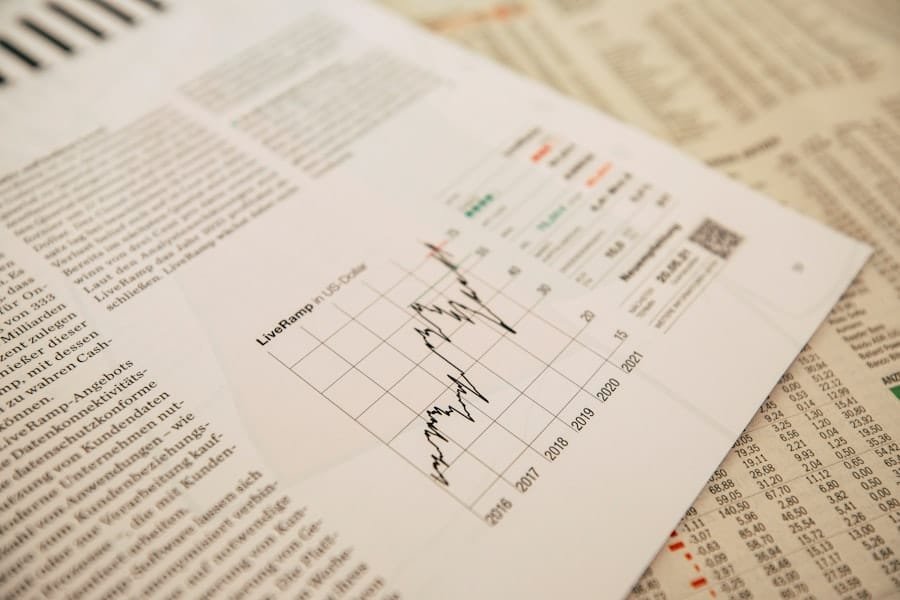Global economic trends significantly influence investment strategies, encompassing factors such as economic growth, inflation, interest rates, and geopolitical events. Investors must understand and analyze these trends to make informed decisions and optimize returns. Recent years have witnessed major shifts in the global economy, including the emergence of new markets, technological advancements, and geopolitical tensions, necessitating adaptation in investment approaches.
The interconnected nature of the global economy means that events in one region can have widespread effects on investors worldwide. The 2008 financial crisis, which began in the United States, exemplifies this interconnectedness, as it led to a global recession and impacted investment strategies globally. Consequently, staying informed about global economic trends is crucial for investors to effectively navigate the complexities of international markets and identify growth and diversification opportunities.
This article will examine the impact of global economic trends on investment strategies, focusing on the roles of technology, political events, diversification, and emerging markets in shaping investment decisions within the global economic context.
Key Takeaways
- Global economic trends have a significant impact on investment strategies and require careful consideration by investors.
- Technology plays a crucial role in shaping investment strategies, with advancements in AI, big data, and automation influencing decision-making processes.
- Global political events can have a direct impact on investment strategies, leading to market volatility and changes in investor sentiment.
- Diversification is essential in a global economic environment to mitigate risk and maximize returns for investors.
- Emerging markets offer unique opportunities for investment strategies, with their potential for high growth and diversification benefits.
The Influence of Global Economic Trends on Investment Strategies
Understanding the Macroeconomic Environment
Understanding the macroeconomic environment is crucial for investors to make informed decisions and position their portfolios for success. Moreover, global economic trends can also impact specific sectors and industries, creating opportunities for investors to capitalize on emerging trends and technological advancements.
Identifying Opportunities in Emerging Trends
For instance, the rise of e-commerce has transformed the retail industry, leading to significant investment opportunities in companies that are at the forefront of this trend. Similarly, advancements in renewable energy and electric vehicles have created new investment opportunities in the energy and transportation sectors. By staying attuned to global economic trends, investors can identify these opportunities and position their portfolios to benefit from long-term growth trends.
Positioning Portfolios for Success
In conclusion, global economic trends have a direct impact on investment strategies, influencing asset allocation, sector rotation, and investment decisions. By understanding and analyzing these trends, investors can position their portfolios to capitalize on growth opportunities and mitigate risks in a dynamic global economic environment.
The Role of Technology in Shaping Investment Strategies

Technology plays a pivotal role in shaping investment strategies in today’s global economy. The rapid advancement of technology has transformed industries, disrupted traditional business models, and created new investment opportunities. For example, the rise of artificial intelligence and machine learning has revolutionized data analysis and decision-making processes in investment management.
These technological advancements have enabled investors to gain deeper insights into market trends, identify investment opportunities, and optimize portfolio performance. Furthermore, technology has also democratized access to financial markets, allowing individual investors to participate in global investment opportunities through online trading platforms and robo-advisors. This has empowered investors to take greater control of their investment decisions and access a broader range of investment options.
Additionally, technological innovations such as blockchain have revolutionized the way assets are transferred and recorded, creating new opportunities for investment in digital assets and cryptocurrencies. In conclusion, technology has significantly impacted investment strategies by enabling data-driven decision-making, democratizing access to financial markets, and creating new investment opportunities in digital assets. As technology continues to evolve, it will play an increasingly important role in shaping investment strategies in a global economy.
The Impact of Global Political Events on Investment Strategies
Global political events can have a significant impact on investment strategies by creating uncertainty, volatility, and geopolitical risks. For example, geopolitical tensions between major world powers can lead to market volatility and impact investor sentiment. Similarly, changes in government policies and regulations can create uncertainty for businesses and investors, leading to shifts in asset prices and investment strategies.
Understanding the impact of global political events is essential for investors to navigate these challenges and position their portfolios for success. Moreover, global political events can also create investment opportunities in certain sectors or regions. For example, geopolitical tensions in the Middle East may lead to increased demand for energy resources, creating opportunities for investment in the energy sector.
Similarly, changes in trade policies or international agreements can impact specific industries and create new investment opportunities. By staying informed about global political events, investors can identify these opportunities and adjust their investment strategies accordingly. In conclusion, global political events have a direct impact on investment strategies by creating uncertainty, volatility, and geopolitical risks.
By understanding the implications of these events and identifying potential opportunities, investors can navigate the complexities of the global market and position their portfolios for long-term success.
The Importance of Diversification in a Global Economic Environment
Diversification is a fundamental principle of investment strategy that is particularly important in a global economic environment. Diversifying across asset classes, sectors, and geographic regions can help investors mitigate risks and optimize portfolio performance. In a global economy characterized by interconnected markets and geopolitical uncertainties, diversification is essential for managing risks and capturing growth opportunities across different regions and industries.
Furthermore, diversification can also help investors navigate market cycles and reduce portfolio volatility. For example, during periods of economic downturns or market corrections in one region or sector, investments in other regions or sectors may continue to perform well, offsetting potential losses. By spreading investments across different asset classes and regions, investors can reduce their exposure to specific risks and enhance the resilience of their portfolios.
In conclusion, diversification is crucial for managing risks and optimizing portfolio performance in a global economic environment. By spreading investments across different asset classes, sectors, and geographic regions, investors can mitigate risks and capture growth opportunities across diverse market conditions.
The Role of Emerging Markets in Investment Strategies

Emerging markets play a vital role in shaping investment strategies by offering unique growth opportunities and diversification benefits. These markets encompass a wide range of economies with diverse growth prospects, demographics, and industries.Access to High-Growth Economies
Investing in emerging markets can provide access to high-growth economies with favorable demographic trends and untapped consumer markets.
Diversification Benefits
Moreover, emerging markets can also offer diversification benefits by providing exposure to different economic cycles and industries that may not be available in developed markets. By investing in emerging markets, investors can enhance the resilience of their portfolios and capture growth opportunities that are not available in developed markets.
Enhancing Portfolio Resilience
In conclusion, emerging markets play a crucial role in shaping investment strategies by offering unique growth opportunities and diversification benefits. By allocating resources to emerging markets, investors can access high-growth economies with favorable demographic trends and enhance the resilience of their portfolios.
The Future of Investment Strategies in a Global Economy
The future of investment strategies in a global economy will be shaped by technological advancements, evolving geopolitical dynamics, and changing consumer behaviors. Technological innovations such as artificial intelligence, blockchain, and big data analytics will continue to revolutionize investment management processes and create new opportunities for alpha generation. Moreover, geopolitical tensions and trade dynamics will continue to impact investor sentiment and create challenges for navigating global markets.
Furthermore, changing consumer behaviors and preferences will also influence investment strategies by creating new opportunities in sectors such as e-commerce, renewable energy, and healthcare. As the global economy continues to evolve, investors will need to adapt their strategies to capitalize on these emerging trends and position their portfolios for long-term success. In conclusion, the future of investment strategies in a global economy will be characterized by technological advancements, evolving geopolitical dynamics, and changing consumer behaviors.
By staying attuned to these trends and adapting their strategies accordingly, investors can position their portfolios for success in a dynamic global economic environment.
If you’re interested in learning more about the impact of global economic trends on investment strategies, you may want to check out this article on The Econosphere’s blog. The article discusses how geopolitical events can influence investment decisions and offers insights into how to navigate these challenges. https://theeconosphere.com/
FAQs
What are global economic trends?
Global economic trends refer to the patterns and changes in the world economy that impact various aspects such as trade, investment, employment, and economic growth. These trends can be influenced by factors such as technological advancements, geopolitical events, and shifts in consumer behavior.
How do global economic trends impact investment strategies?
Global economic trends can significantly impact investment strategies by affecting the performance of different asset classes, industries, and regions. For example, a slowdown in global economic growth may lead investors to shift their focus towards defensive stocks or safe-haven assets.
What are some examples of global economic trends that can influence investment strategies?
Examples of global economic trends that can influence investment strategies include changes in interest rates, currency fluctuations, geopolitical tensions, and shifts in consumer spending patterns. These trends can create both opportunities and risks for investors.
How can investors adapt their strategies to respond to global economic trends?
Investors can adapt their strategies to respond to global economic trends by diversifying their portfolios across different asset classes and geographic regions, staying informed about macroeconomic indicators and geopolitical events, and adjusting their investment allocations based on changing market conditions.
What are some potential risks associated with global economic trends on investment strategies?
Some potential risks associated with global economic trends on investment strategies include market volatility, currency devaluation, geopolitical instability, and changes in regulatory policies. These risks can impact the performance of investment portfolios and require investors to carefully assess and manage their exposure.








